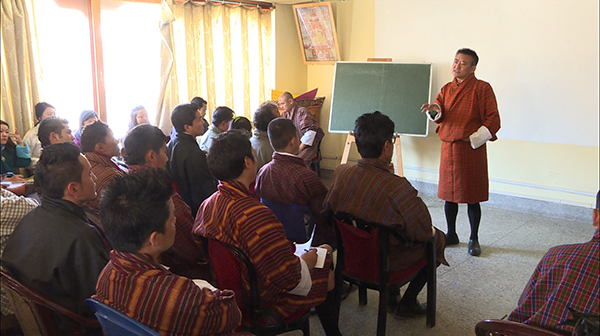 The tour guides in the country are against the National Council’s recommendations to liberalise tourists’ tariff which is US$ 250 per night.
The tour guides in the country are against the National Council’s recommendations to liberalise tourists’ tariff which is US$ 250 per night.
During a meeting today, in Thimphu, the guides said, and the liberalisation in the tariff will have a negative impact on them. The tariff has remained unchanged since 1970s.
They feel they probably might have to live on bare minimum. They said tour operators will bring in tourists at low rates and only minimum incentive will trickle down to them.
“Tour operators will negotiate with the tourists on rates. They will look at how to generate revenue for their businesses. So, that will leave less incentive for us,” said a tour guide, Ugyen Wangchuk.
A freelance tour guide, Tshittim Jamtsho said once the tariff is liberalised, there will be no room for the tour operators to negotiate the rates. “Tourists will be travelling at a cheaper rate which means our income will be compromised.”
Guides also pointed out that the tariff liberalisation coming through could also mean decrease in the number of dollar paying tourists.
If the government endorses the NC’s recommendation, the guides say, the tour operators must employ guides for tourists.
On December 1, the National Council members endorsed the tourists’ tariff revision and recommendations.
The NC economic affairs committee’s Chairperson, Pema Tenzin had said the new pricing mechanism can discourage undercutting which apparently exists in tourism industry.
Undercutting happens when a tourism package is sold below the market price.
“When we talk about undercutting, it is about how the price of the service goes down. So if a tour operator undercuts, then the hotel has to undercut. And then guide’s services has to be undercut,” the Chairperson had said.
He had also said undercutting is not healthy for Bhutan’s tourism policy of high value low impact.
The committee has asked the Royal Audit Authority to conduct a thorough auditing process on economy and efficiency of the tourism sector.









